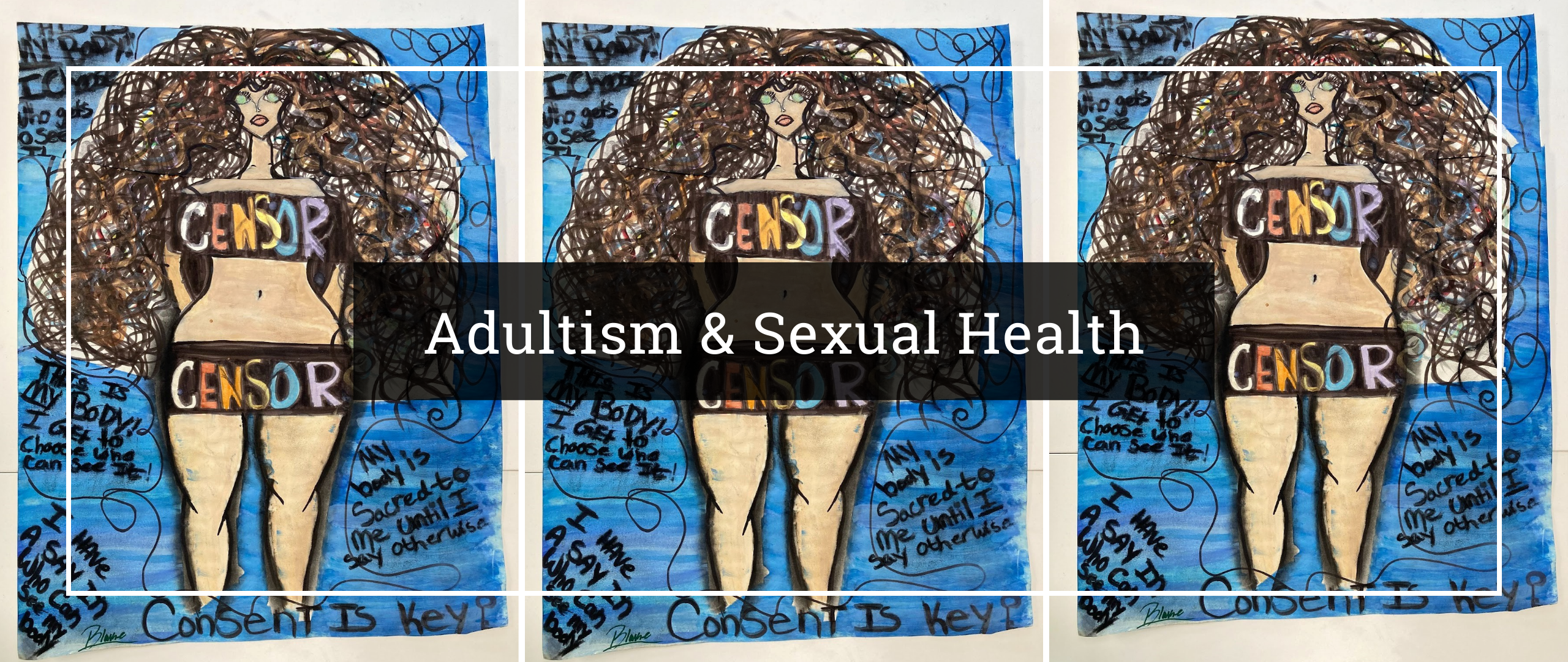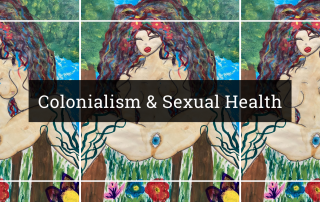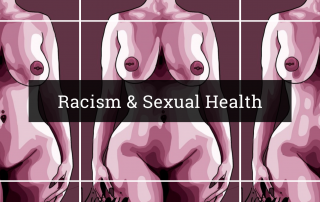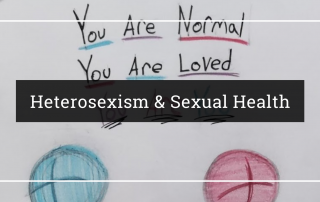
Written and researched by Tomei Kuehl
Accompanying artworks selected in partnership with Talia Cardin, Youth-facilitator to the Youth Sexual Health Program Board
Adultism:
“Adultism is a form of oppression that everyone eventually becomes part of when they grow up. It’s the act of not listening to young people because adults have all the knowledge, have all the answers but in reality, we know that’s not true. Everyone is still learning. There’s always room for growth. Adultism is an oppressive way of shutting out students or young people from expressing themselves fully, from discovering or asking questions.”
– Bourbon ‘n BrownTown Podcast – Ep. 54 (Re)Birth of an Uprising: Adultism, Cops Out of Schools, & Organizing a New Mass Consciousness ft. Veronica Rodriguez & Asha Edwards
“The ideology of adult supremacy is comprised of a set of beliefs, attitudes, policies, and practices that construct adults as developed, mature, intelligent, and experienced based solely on their age and ensures that adults control the resources and make the decisions in society.”
– Definition provided by K. DeJong & B.J. Love, “Youth oppression as a technology of colonialism: Conceptual frameworks and possibilities for social justice education praxis”
In our society, young people are one of the most regulated and controlled groups apart from prisoners and a few other institutionalized groups (Bell, 1995). For instance, adultist systems may deny young people control of decisions that affect their bodies, schools require permission to use the restroom, adults may pick up little children without consent, and students must accept their grades without the opportunity to officially grade their teachers. These examples demonstrate how ingrained adultism is in our society. The experience of adultism is different for each person and the harm is compounded by the intersection with other forms of oppression like systemic racism, white supremacy, patriarchy, social class inequities, heteronormativity, xenophobia, and other forms of oppression to create further barriers for young people.
The idea that “children should be seen and not heard” is rooted in adultism and is buoyed by theories of developmentalism, which view young people growing and developing under adults. Adults make choices for young people without their agreement because they are not deemed developmentally mature. This view creates distrust of young people to make their own decisions and to have their own voice (Betrand, Brooks & Domínguez, 2020). The ability for people younger than 18 to consent to a variety of sensitive health care services, including sexual and reproductive health, vary across states. In 1977, the U. S. Supreme Court heard Carey v. Population Services International, a New York statute that made it a crime to sell or distribute birth contraceptives to minors under the age of 16. The Supreme Court overturned New York’s law and affirmed the right of young people to access contraceptives.
The balance between parental rights and rights of minors is complicated with variance in parental consent laws across states related to HIV and other STI services, contraceptive access, pregnancy care, adoption, or medical care for a child (Guttmacher Institute, 2022). Since its inception in the 1970s, the Title X Family Planning Program has been available to anyone with no age limits. There have been attempts to eliminate youth access to confidential contraceptive services at both the federal and state level. In 1998, the House of Representative passed a parental notification requirement bill; however, the Senate did not so the provision was not enacted (Guttmacher Institute, 2022). Similarly, the Texas legislature and the South Carolina legislature have attempted to pass measures that would eliminate young people’s access to birth control without parental consent but none of these efforts have passed to date.
The systematic mistreatment and distrust of young people through adultism effectively silences young people and the dismantling of adultism requires adults to push back against systems built on the foundation of devaluing youth.
References
- Bell, John. (1995, March) Understanding Adultism: A Major Obstacle to Developing Positive Youth-Adult Relationships. https://actioncivics.scoe.net/pdf/Understanding_Adultism.pdf
- Bertrand M, Brooks MD, Domínguez AD. Challenging Adultism: Centering Youth as Educational Decision Makers. Urban Education. September 2020 https://www.studocu.com/cl/document/universidad-de-chile/introduccion-a-la-investigacion/adultismo-xxxxx/13926459
- Guttmacher Institute. An Overview of Consent to Reproductive Health Services by Young People. (August 1, 2022). https://www.guttmacher.org/state-policy/explore/overview-minors-consent-law



